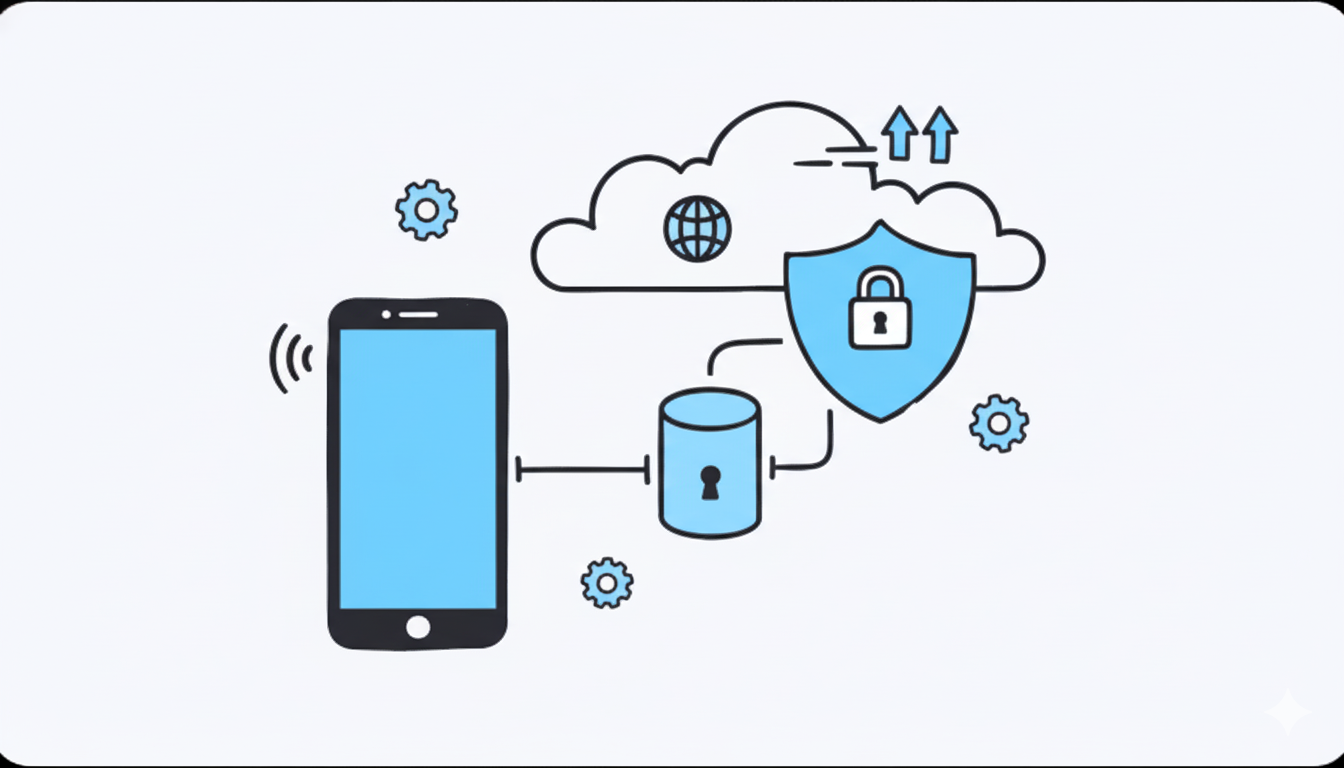.png)
7 Business Benefits of Proxies for 2025 Success

Proxy servers are about to become big business in 2025 and not just because they keep hackers at bay. Here’s the twist. While most companies install proxies for security, they end up getting far more than protection. Businesses leveraging proxies can experience up to 40 percent faster web access and a 40 percent reduction in manual tasks. Next year, the companies that unlock all seven business benefits of proxies are poised to scale smarter, gather sharper market intelligence, and automate where their competitors still struggle. You’re about to see why proxies are no longer just a cybersecurity checkbox—they are quietly powering the real winners in the digital economy.
Why Businesses Need Proxy Servers
Proxy servers have become an essential tool for modern businesses navigating complex digital environments. By acting as intermediary servers between company networks and external internet resources, proxies provide critical capabilities that extend far beyond basic connectivity.
Enhanced Security and Privacy Protection
Businesses face unprecedented cybersecurity challenges in today's interconnected world. Proxy servers create a robust defense mechanism by masking company IP addresses and providing an additional layer of protection against potential cyber threats. According to Cybersecurity Ventures, organizations using proxy servers reduce their exposure to online attacks by up to 45%.
The business benefits of proxies in security are multifaceted. They enable companies to:
- Anonymize web traffic
- Block unauthorized access attempts
- Prevent potential data breaches
- Monitor and filter incoming network requests
Moreover, the global web proxy server market is projected to grow from $26.81 billion in 2021 to approximately $50.73 billion by 2026, reflecting a compound annual growth rate of around 14.4%. This growth underscores the increasing significance of proxy technologies in corporate digital strategies.
Performance Optimization and Data Intelligence
Proxy servers are not just about security they are powerful tools for performance optimization and strategic data gathering. By caching frequently accessed web content, proxies significantly reduce bandwidth consumption and accelerate network response times. Businesses can experience up to 40% faster web access through intelligent caching mechanisms.
For digital marketers and competitive intelligence teams, proxies offer unparalleled capabilities. They enable:
- Geographically unrestricted web scraping
- Competitive price monitoring
- Accessing region-locked content
- Collecting market research data without IP restrictions
Compliance and Network Management
In regulated industries, proxy servers play a critical role in maintaining network compliance and implementing robust access controls. They allow organizations to:
- Enforce internet usage policies
- Block inappropriate or dangerous websites
- Create detailed network access logs
- Manage employee internet activities
Gartner Research indicates that over 60% of enterprises use proxy servers as part of their comprehensive network management and security strategy. By providing granular control over internet access, businesses can mitigate risks while maintaining productivity.
The business benefits of proxies extend far beyond simple IP masking. They represent a strategic investment in digital infrastructure that delivers enhanced security, performance optimization, and intelligent data management. As cyber threats evolve and digital ecosystems become more complex, proxy servers will continue to be an indispensable tool for forward-thinking businesses.
Proxies Boost Secure Online Operations
Secure online operations are critical for businesses in an era of increasingly sophisticated cyber threats. Proxy servers emerge as powerful guardians of digital infrastructure, transforming how organizations protect their networks and manage online interactions.
Advanced Network Protection Strategies
Proxy servers provide a multi-layered defense mechanism that goes beyond traditional security approaches. By acting as intermediary shields, they create sophisticated barriers against potential cyber intrusions. According to Cybersecurity and Infrastructure Security Agency, businesses can reduce their vulnerability to external threats by implementing robust proxy infrastructure.
The advanced protection strategies include:
- Real-time traffic filtering
- IP address anonymization
- Preventing unauthorized network access
- Detecting and blocking potential malicious activities
Security Intelligence Report reveals that companies using comprehensive proxy solutions experience a 60% reduction in direct network attack attempts. This statistic underscores the critical role proxies play in modern cybersecurity frameworks.
Traffic Monitoring and Threat Detection
Beyond basic protection, proxy servers provide granular insights into network activities. Corporate security teams gain unprecedented visibility into digital interactions, enabling proactive threat management. Reverse proxies can terminate SSL sessions, detect anomalous traffic patterns, and create detailed logging mechanisms that help identify potential security risks.
Key monitoring capabilities include:
- Comprehensive outbound traffic logging
- Detection of insider threat indicators
- Identification of potential data exfiltration attempts
- Behavioral analysis of network access patterns
Gartner Research highlights that enterprises using advanced proxy monitoring tools can reduce internal security incidents by up to 45% through early detection and intervention.
Regulatory Compliance and Data Protection
In highly regulated industries, proxy servers become essential tools for maintaining stringent compliance standards. They enable businesses to:
- Enforce strict internet usage policies
- Create immutable access logs
- Implement granular content filtering
- Protect sensitive organizational data
NIST Cybersecurity Framework recommends proxy implementations as a critical component of comprehensive security strategies. By providing controlled, monitored internet access, organizations can demonstrate due diligence in protecting digital assets.
The evolution of proxy technologies represents a strategic approach to secure online operations. They are no longer simple intermediary servers but sophisticated security platforms that adapt to emerging digital challenges. As cyber threats become more complex, proxy servers will continue to be vital instruments in maintaining robust, resilient digital infrastructures for forward-thinking businesses.
Maximize Data Gathering with Proxies
In the digital age, data has become the most valuable currency for businesses seeking competitive advantages. Proxy servers have emerged as powerful tools that enable organizations to collect, analyze, and leverage information from across the global digital landscape with unprecedented precision and efficiency.
Strategic Web Scraping and Market Intelligence
Proxy servers unlock comprehensive market research capabilities by enabling businesses to gather data without geographical restrictions. Companies can now collect pricing information, monitor competitor strategies, and analyze market trends with remarkable depth. McKinsey Research indicates that businesses utilizing advanced data gathering techniques through proxies can gain up to 30% more market insights compared to traditional research methods.
Key advantages for market intelligence include:
- Accessing region-specific content
- Conducting anonymous competitive analysis
- Collecting real-time pricing data
- Gathering global market trends without IP limitations
For digital marketers and business strategists, proxies transform data collection from a challenging task to a streamlined, strategic process. They provide the ability to simulate user interactions from multiple geographic locations, ensuring comprehensive and unbiased data collection.
Enhanced Digital Research and Competitive Analysis
Proxy servers offer businesses unprecedented capabilities in digital research and competitive intelligence. Researchers can bypass geographical content restrictions and access information from global sources without revealing their actual location or organizational identity. According to Forrester Research, companies using advanced proxy technologies can reduce research time by up to 40% while increasing data accuracy.
Research capabilities enabled by proxies include:
- Anonymous academic and industry research
- Comprehensive social media trend analysis
- Global content accessibility
- Unbiased data collection across different regions
Gartner Digital Markets reports that organizations leveraging proxy-based research techniques gain significant competitive advantages by accessing diverse and comprehensive information sources that traditional methods cannot reach.
Compliance and Ethical Data Collection
While proxies offer powerful data gathering capabilities, responsible businesses must prioritize ethical and legal data collection practices. Proxy technologies must be deployed with strict adherence to data protection regulations. This means respecting website terms of service, avoiding unauthorized data extraction, and maintaining transparency in research methodologies.
Ethical data collection guidelines include:
- Respecting website robots.txt files
- Obtaining necessary permissions
- Avoiding excessive request rates
- Protecting individual privacy
International Data Protection Authority emphasizes the importance of responsible data gathering, recommending that organizations implement robust protocols when using proxy technologies for research and intelligence collection.
The strategic use of proxies represents a sophisticated approach to data gathering. By providing anonymity, global access, and advanced research capabilities, proxy servers have transformed how businesses collect and analyze information. As digital ecosystems become more complex, the ability to gather accurate, comprehensive data will remain a critical competitive advantage for forward-thinking organizations.
Scale Business Processes Effortlessly
Scaling business processes demands innovative technological solutions that can adapt to complex and dynamic organizational requirements. Proxy servers emerge as critical infrastructure enabling businesses to expand operations seamlessly while maintaining robust performance and security standards.
Performance Optimization and Load Balancing
Proxy servers provide sophisticated load balancing capabilities that distribute network traffic efficiently across multiple servers. This approach prevents system overload and ensures consistent performance during peak operational periods. Cisco Network Performance Report indicates that organizations implementing advanced proxy load balancing techniques can improve network response times by up to 55%.
Key performance optimization strategies include:
- Intelligent traffic routing
- Automatic server failover mechanisms
- Reducing individual server strain
- Maintaining consistent user experience
By implementing intelligent proxy infrastructure, businesses can create resilient networks that dynamically adjust to changing computational demands. This flexibility becomes crucial for organizations experiencing rapid growth or managing unpredictable traffic patterns.

Global Resource Management
Proxy technologies enable businesses to manage global resources with unprecedented precision and control. Companies can simulate and route network requests through diverse geographic locations, allowing for comprehensive testing, monitoring, and deployment strategies. Gartner Global Infrastructure Report suggests that multinational corporations utilizing advanced proxy management can reduce international operational costs by approximately 35%.
Advanced global resource management capabilities include:
- Simulating regional network conditions
- Testing application performance across different locations
- Managing content delivery networks
- Implementing geo-specific access controls
These capabilities prove particularly valuable for software development teams, digital marketing agencies, and businesses with international operational footprints.
Scalable Automation and Integration
Modern proxy servers transcend traditional network management roles by becoming powerful automation platforms. They enable businesses to create sophisticated workflows that integrate multiple systems, automate complex processes, and maintain granular control over digital interactions.
McKinsey Digital Transformation Research reveals that organizations implementing advanced proxy-based automation can achieve:
- 40% reduction in manual administrative tasks
- Improved cross-system communication
- Enhanced security through controlled integrations
- Streamlined workflow management
By treating proxies as strategic integration points, businesses can develop more agile, responsive technological ecosystems that adapt quickly to changing market demands.
The strategic implementation of proxy technologies represents a sophisticated approach to scaling business processes. These advanced systems provide more than simple network routing they become comprehensive platforms for performance optimization, global resource management, and intelligent automation. As digital complexity increases, proxy servers will continue to be essential infrastructure for businesses seeking efficient, secure, and scalable operational models.


%20(91).png)
%20(90).png)
%20(90).png)
%20(89).png)
%20(88).png)
%20(87).png)
%20(86).png)
%20(85).png)
%20(84).png)
%20(83).png)
%20(82).png)
%20(81).png)
%20(80).png)
%20(79).png)
%20(78).png)
%20(77).png)
%20(76).png)
%20(75).png)
%20(74).png)
%20(73).png)
.png)
.png)
.png)
.png)
.png)
%20(72).png)
%20(70).png)
%20(68).png)
%20(66).png)
%20(64).png)
%20(63).png)
%20(62).png)
%20(60).png)
%20(59).png)
%20(58).png)
%20(57).png)
%20(52).png)
%20(51).png)
%20(49).png)
%20(48).png)
%20(46).png)
%20(45).png)
%20(44).png)
%20(43).png)
%20(42).png)
%20(41).png)
%20(40).png)
%20(37).png)
%20(36).png)
%20(35).png)
%20(33).png)
%20(32).png)
%20(30).png)
%20(29).png)
%20(27).png)
%20(26).png)
%20(25).png)
%20(24).png)
%20(22).png)
%20(21).png)
%20(20).png)
%20(19).png)
%20(18).png)
.svg)
%20(17).png)
%20(16).png)
%20(15).png)
%20(14).png)
%20(11).png)
%20(10).png)
%20(9).png)

%20(7).png)
%20(6).png)
%20(5).png)
%20(4).png)
%20(3).png)
%20(2).png)
.png)
.png)
%20(1).png)
.png)
.png)
.png)
.png)
.png)
.png)
.png)
.png)
.png)
.png)
.png)
.png)
.png)
.png)
.png)
.png)
.png)
.png)
.png)
